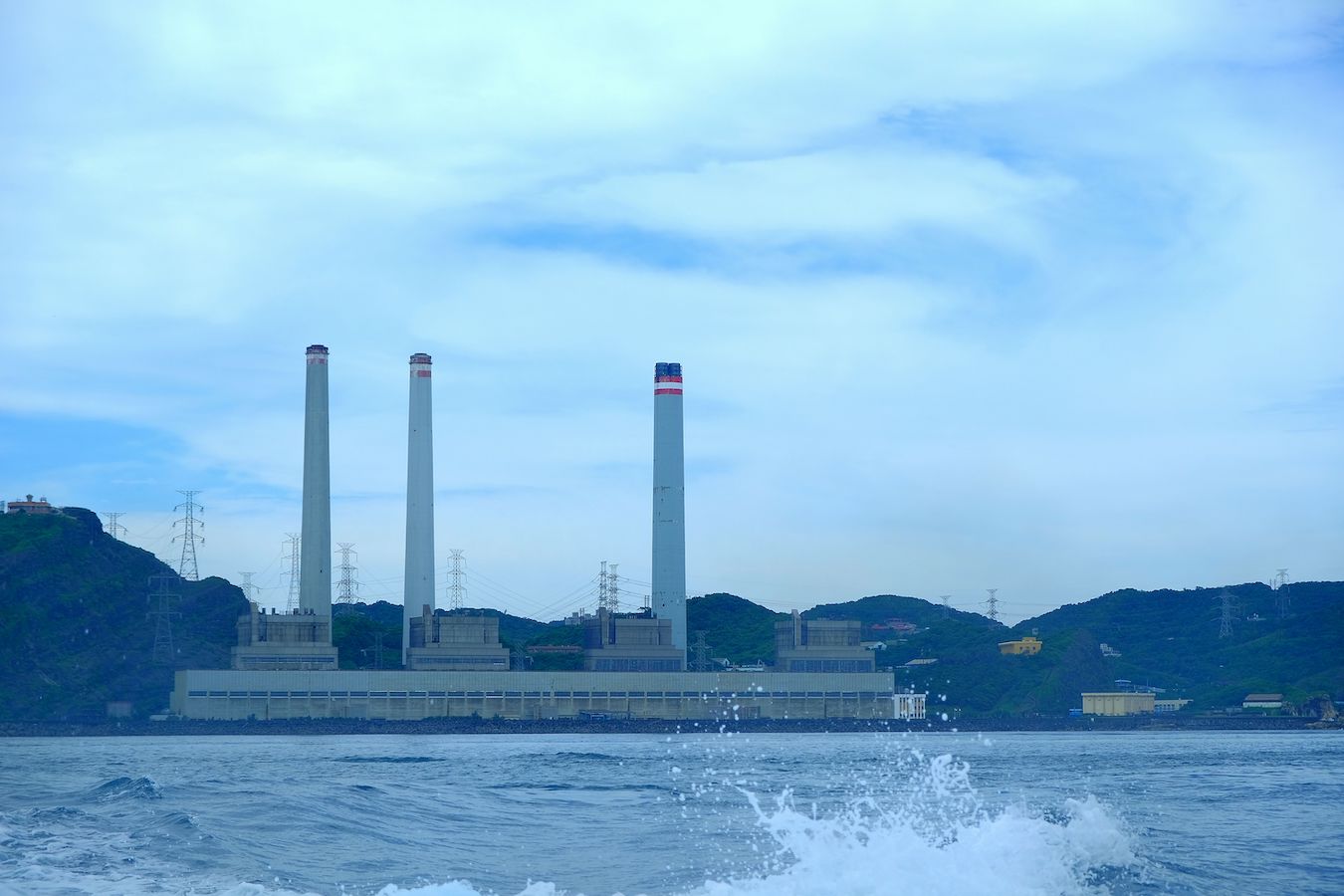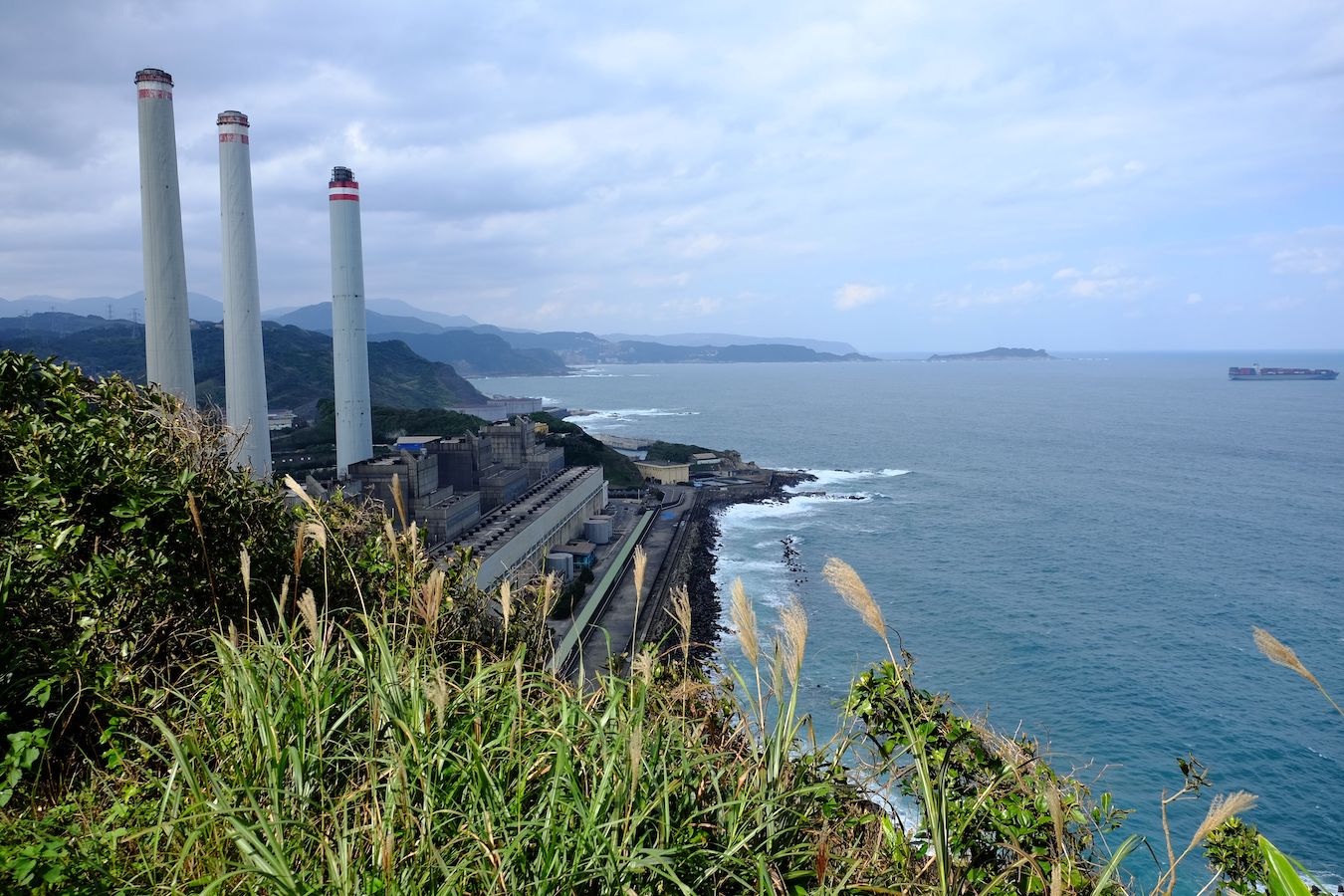by Brian Hioe
語言:
English
Photo Credit: lienyuan lee/WikiCommons/CC BY 3.0
CONFLICT BETWEEN the Keelung local government and the central government about a proposed referendum on a liquified natural gas (LNG) terminal is reflective of political tensions between the two major political camps in Taiwan. The LNG terminal would be Taiwan’s fourth.
In particular, Keelung is currently controlled by the KMT under the mayorship of George Hsieh, who took office after a win in nine-in-one elections in November last year. Hsieh and his government are supportive of a referendum on an LNG terminal to be built off of the coast of Keelung, while the central government has decided to revoke approval of the referendum. Hsieh has stated that he will file an administrative lawsuit against the central government for seeking to block the terminal, stating that this is violating the city’s autonomy.
Plans for the LNG terminal currently involve transforming the 2,000-megawatt oil-fired Xiehe Power Plant, which is currently the only fully oil-fired power plant in Taiwan, into a gas-fired plant. Originally, plans were to build the terminal off of the northern coast of Waimushan. However, criticism from local politicians and environmental activists led to the relocation of the proposed LNG terminal to near the Xiehe Power Plant.
 Photo credit: Taiwankengo/WikiCommons/CC BY-SA 4.0
Photo credit: Taiwankengo/WikiCommons/CC BY-SA 4.0
Likewise, the original plans for the terminal did not pass an environmental impact assessment (EIA), though the EIA was initially criticized as perfunctory in nature by environmental groups. Namely, the members of the review committee for the EIA were set to step down at the end of June last year, as a result of which civil society groups against the LNG terminal called for the EIA to be delayed.
The EIA has still not taken place, with state-run power utility Taipower promising to provide more information before it does. Civil society groups critical of the Keelung LNG terminal included the Society of Wilderness, Wild at Heart Legal Defense Association, Citizens Association for Public Policy, Taiwan Watch Institute, Left Corner Foundation, and others.
The KMT is likely hoping to leverage on the referendum for its own purposes in the election campaign. A December 2021 referendum was held on a LNG receiving terminal that was to be built off the coast of Datan, Taoyuan. The Taoyuan LNG terminal was criticized by local environmentalists as threatening the 7,000-year-old Datan coral reef, however.
Although the referendum petition originally would not have met the necessary benchmarks to be put to a national vote, it did after the KMT got involved with the issue. This occurred despite that the LNG terminal was first proposed when the KMT held power, with the conservation of the Datan reef proving to be an issue on which the KMT and DPP traded positions between when in power and out of it. At the time, the government also defended itself by citing how it had amended plans for the LNG terminal in response to criticisms.
The referendum was defeated in favor of the DPP, something reflective of the strong position of the DPP at the time, particularly with Taoyuan mayor Cheng Wen-tsan of the DPP being highly popular at the time. Nevertheless, given the KMT’s successes in using the national referendum as a boost for campaigning efforts in 2018, the pan-Blue camp likely still hopes to capitalize on referendums.
 Photo credit: Taiwankengo/WikiCommons/CC BY-SA 4.0
Photo credit: Taiwankengo/WikiCommons/CC BY-SA 4.0
Ironically, many of the civil society groups critical of the LNG terminal are relatively close to the pan-Green camp, with the DPP having historically drawn from such organizations in terms of politicians it fields in elections. It is to be seen whether such civil society groups are put in an awkward position by the KMT siding with environmentalists.
For its part, the Central Election Commission claims that the Keelung local government would be violating its authority in approving the referendum, but that the local government could provide “guidance” to referendum petitions. Moreover, the suggestion is that national energy policy is not subject to a referendum.
It is probable that the Tsai administration hopes to prevent a local issue from becoming a national political firestorm in this way. Nevertheless, it is to be seen whether the public at large accepts this claim, particularly if the KMT is successful in framing the DPP as violating basic democratic freedoms or the central government as seeking to silence local voices through its actions.

